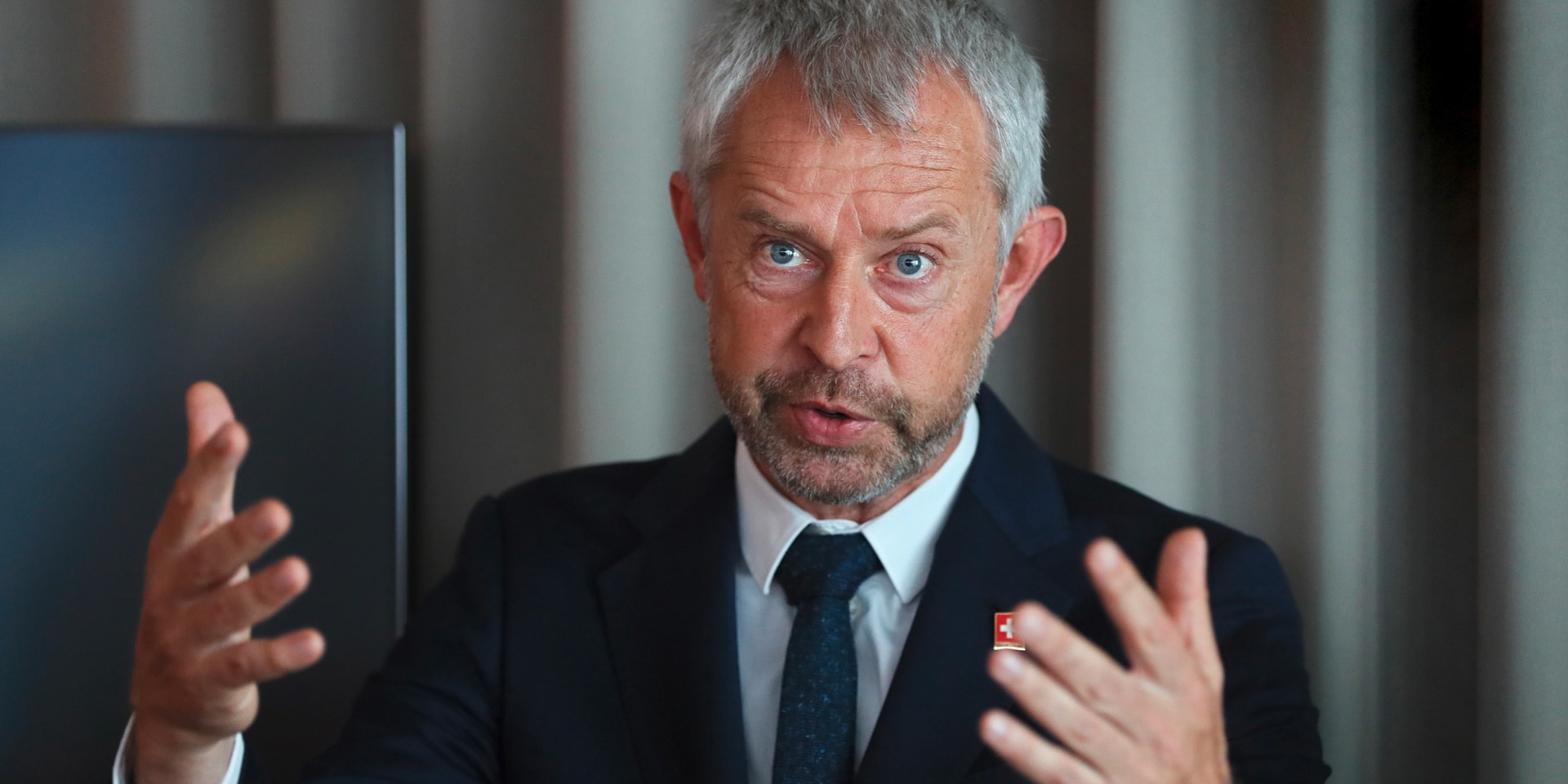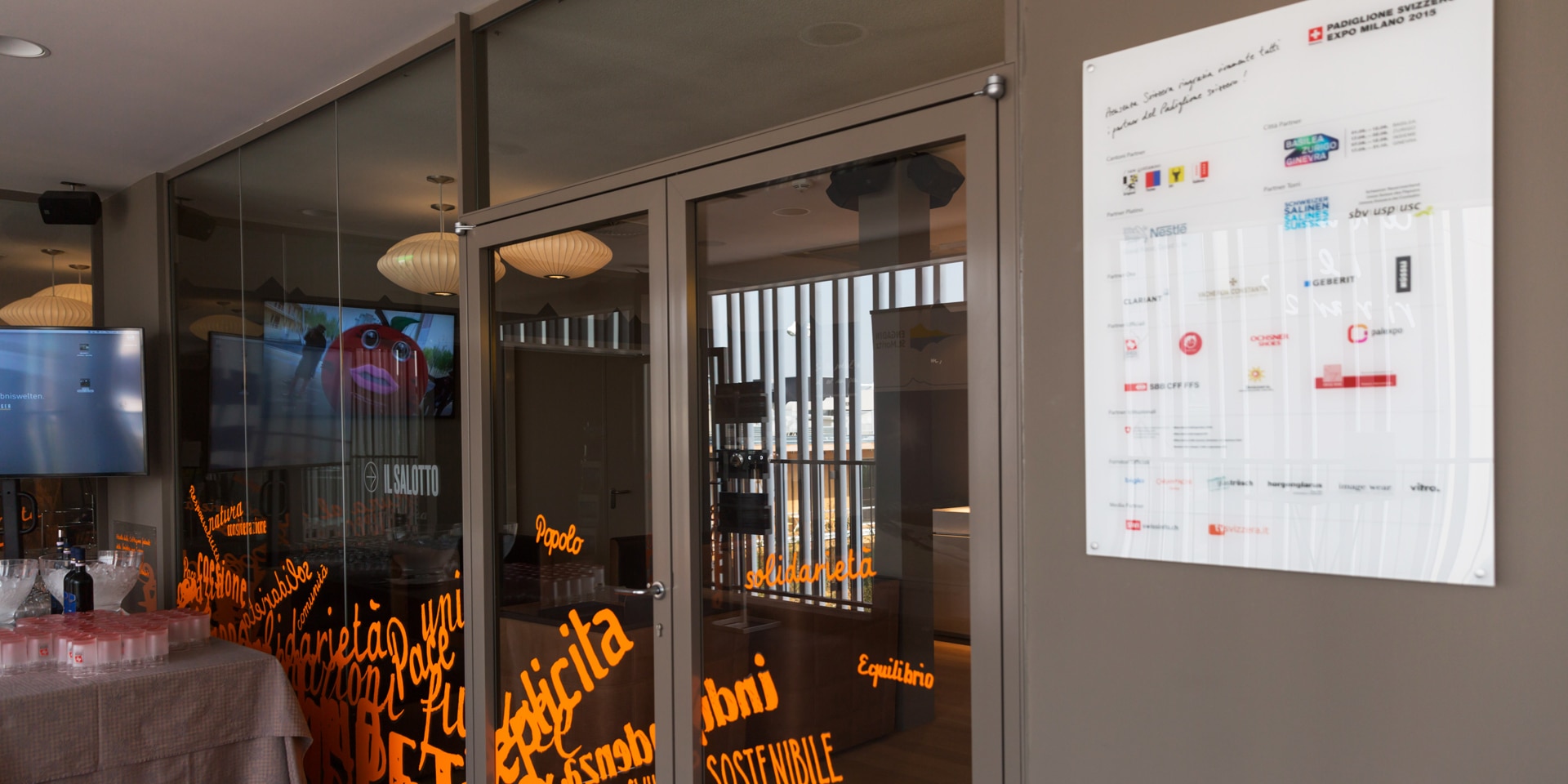“The FDFA exercises due diligence on sponsorship”
Presence Switzerland (PRS) was instructed to revise the FDFA sponsorship policy as a direct result of the department's new strategy for communication abroad. The policy establishes the criteria governing future private sponsorship partnerships for its head office and representations abroad. What changes have been introduced to the PRS sponsorship manual? The head of PRS, Nicolas Bideau, explains.

As head of Presence Switzerland, Nicolas Bideau has been commissioned to revise the guidelines of the FDFA's new Sponsorship Policy in 2019. © Keystone
The new criteria have not, in essence, altered the fundamental principles set out in the sponsorship manual; the FDFA still has private sponsors for its representations abroad. Why are private sponsorship partnerships so desirable?
We aim to have a fruitful collaboration between the Swiss Confederation and the private sector. Switzerland has extensive experience in this area. The Confederation mostly works with businesses with whom 'image transfer' is possible. The companies thus have the opportunity to embrace our country's values and to be associated with the Swiss brand. The Confederation conveys a positive image, which is a key factor to success and adds value. For the Confederation, the collaboration is an opportunity to safeguard its interests and contributes to its prosperity.
The sponsorship policy reinforces the criteria for future sponsorship partnerships. But these new criteria seem to be all about the details. In concrete terms, what is actually new?
Indeed, the partnerships with businesses haven't changed. However, we will now be more demanding on the issue of image transfer. In the past, there was more room for manoeuvre. Presence Switzerland wants to ensure that any image transfer will be beneficial to the Confederation, which is why it will now be stricter on certain criteria when selecting sponsors. This is about protecting core Swiss values, for example with respect to the environment and human rights. Similarly, if a private business has a negative image in the media, it will deter us from concluding a partnership agreement with them.
Previously, this kind of analysis was conducted independently, without involving Switzerland. A partner who had a good image abroad (for example, in Asia or Latin America) might not necessarily have enjoyed the same reputation in Switzerland. We therefore decided to be more demanding and to set rules for selecting sponsors, which will be implemented both in Switzerland and abroad. In other words, the FDFA is exercising due diligence. We aim to be completely transparent with the public and undertake that, from 1 January 2021, the FDFA will disclose the names of all its sponsors, both in Switzerland and in all of its representations abroad.
In the context of the Dubai World Expo, what repercussions would this new sponsorship policy have had on the partnership concluded with Philip Morris International (PMI) two years ago?
The situation with PMI would have been settled quite easily. The Swiss media's coverage on this issue was negative. Some people, and several media outlets, didn't understand the partnership for a variety of reasons, the most obvious being the parliamentary debate on banning tobacco advertising to protect young people. Now, this negative media coverage would mean that the sponsor would fail to meet the criteria set for a partnership with the Confederation. Every Swiss citizen needs to understand why a partnership has been entered into with a particular actor in the private sector. If there is any doubt as to whether the impact of the image transfer will be positive, the FDFA will not go ahead.

Does this mean that certain sectors will be excluded immediately from any prospect of a partnership with the Confederation?
The FDFA will conduct a careful assessment of each individual case and will reach a decision having weighed up the benefits and risks of concluding any new sponsorship partnership. That said, it's important to point out that, from 1 January 2021, certain sectors will find it more difficult to meet the Confederation's criteria. Moreover, circumstances can change, which is why all partnership agreements must have exit clauses in the event of a breach or oversight of the principles laid down by the FDFA. The criteria have to be more specific as we increasingly live in a world governed by ethics – the FDFA cannot disregard this.
To what extent does the sponsorship policy achieve the goals set by the FDFA Strategy for Communication Abroad, as adopted by the Federal Council?
The strategy for communication abroad has, up to now, only applied to the business world indirectly. The question of the role of businesses in the communications policy mainly only arose in the context of world expos and with regard to Swiss brands at the Olympic Games, which partially favoured partnerships with private sponsors. Since the COVID-19 crisis, the Federal Council has sought to include support for businesses and exports as part of its five primary objectives in Switzerland's Strategy for Communication Abroad. The impact of the pandemic has meant that traditional export promotion agencies have required special support with their communications; the nature of our relationship with businesses must therefore be beyond reproach. By having a closer relationship with them, we will also have to adjust the way we work and collaborate if we are to achieve our domestic and foreign policy objectives.
Are there differences between the criteria for the implementation of this new sponsorship policy at head office and in the embassies? How will PRS support the Swiss embassies in the future?
The guidelines on sponsorship, signed off by the head of department, provide a framework for implementation that the Swiss embassies have a duty to uphold. However, the responsibility for interpreting this policy framework will continue to fall to the heads of mission who, as always, have full powers to act independently on the government's behalf. Nevertheless, if in doubt, Presence Switzerland will from now on have a centre of expertise at the embassies' disposal, which will adhere to the general guidelines. The difference between head office and the representations abroad is that the heads of mission are able to conduct their own assessments of the situation on the ground. Indeed, many companies are not actually active in Switzerland but rather operate beyond our borders. The principles therefore remain the same but change according to the circumstances.

